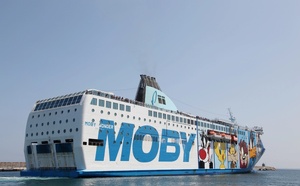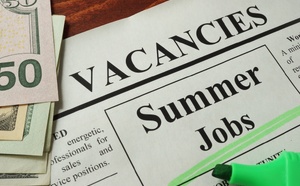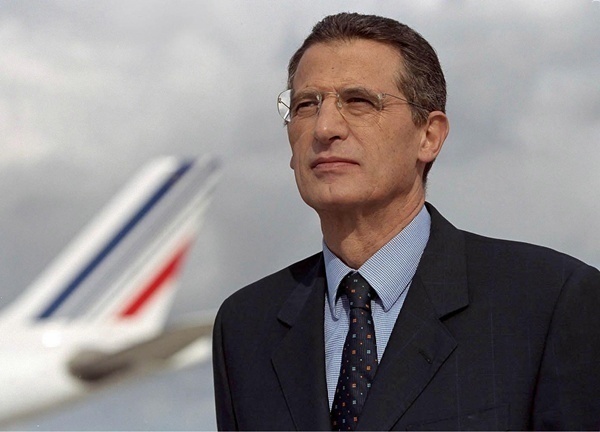
Jean-Cyril Spinetta remained unbudgingly unresponsive to the development of low-cost companies. A short-sightedness that will first cost major market shares to the transport company and then cause an important collapse of the short and medium-haul network. /photo AF
The French transport company, that is beginning its 2nd week of strikes on Monday, has already lost almost 100 million euros in the last week.
The Unions of pilots are preparing to double this number this week.
A tidy sum considering Air France’s current financial situation.
Everything has already been said on the Unions of Pilots, these air crew members with “big salaries” that only care about preserving their income and privileges and who, for that reason, are once again taking their passengers hostage.
But when we zoom in closer, are they the only culprits?
Have we asked the question to know why and how the company ended up in this situation?
Who is truly responsible for the carelessness and vagueness in which the transporter has been submerged in for years?
Flash back. After having exploited all possible means to protect the national transporter (at the time), the French government, under European pressure, was forced to make concessions.
So the sky opens up to European transporters, especially to low-cost companies such as Ryanair and Easyjet.
Surprisingly, Air France’s leaders (the “visionary” one at the time was Jean-Cyril Spinetta) saw nothing coming.
The man who succeeded on April 5th, 2004, in fusing Air France with KLM, that will become (at the time) the leading company in the world in terms of revenue, remained unbudgingly unresponsive to the development of low-cost companies.
He did not want to hear about it. A short-sightedness that will first cost the company important market shares and then an almost complete collapse of the short and medium-haul network.
The Unions of pilots are preparing to double this number this week.
A tidy sum considering Air France’s current financial situation.
Everything has already been said on the Unions of Pilots, these air crew members with “big salaries” that only care about preserving their income and privileges and who, for that reason, are once again taking their passengers hostage.
But when we zoom in closer, are they the only culprits?
Have we asked the question to know why and how the company ended up in this situation?
Who is truly responsible for the carelessness and vagueness in which the transporter has been submerged in for years?
Flash back. After having exploited all possible means to protect the national transporter (at the time), the French government, under European pressure, was forced to make concessions.
So the sky opens up to European transporters, especially to low-cost companies such as Ryanair and Easyjet.
Surprisingly, Air France’s leaders (the “visionary” one at the time was Jean-Cyril Spinetta) saw nothing coming.
The man who succeeded on April 5th, 2004, in fusing Air France with KLM, that will become (at the time) the leading company in the world in terms of revenue, remained unbudgingly unresponsive to the development of low-cost companies.
He did not want to hear about it. A short-sightedness that will first cost the company important market shares and then an almost complete collapse of the short and medium-haul network.
Ryanair et al. are very comfortable in their seats
Autres articles
-
 Plongée dans le simulateur de vol d’Air France : immersion dans un cockpit à 10 millions de dollars
Plongée dans le simulateur de vol d’Air France : immersion dans un cockpit à 10 millions de dollars
-
 Thaïlande : Air France dévoile une nouvelle destination soleil, cap sur Phuket !
Thaïlande : Air France dévoile une nouvelle destination soleil, cap sur Phuket !
-
 Air France : visitez le salon entièrement repensé du terminal 2E de CDG (photos)
Air France : visitez le salon entièrement repensé du terminal 2E de CDG (photos)
-
 Air France : Rafael Bence nommé responsable commercial Marchés Loisirs
Air France : Rafael Bence nommé responsable commercial Marchés Loisirs
-
 Air France : visitez la luxueuse cabine "La Première" (photos)
Air France : visitez la luxueuse cabine "La Première" (photos)
When Air France finally decided to react under the leadership of Pierre-Henri Gourgeon (another “visionary”) by launching low cost flights from its bases in the province, it was already too late.
Ryanair et al. are way too comfortable in their seats for Air France to even dream of dislodging them with its few flights leaving from Toulouse, Nice, or Marseille…
The rot has already set in and getting rid of it will require drastic measures. But the strategy still remains very vague.
In 2007, Transavia positions its planes on the tarmac. Based out of the Dutch branch of KLM, the launch of Transavia is yet another attempt to confront the unstoppable increase of low-cost transporters.
The arrival of Alexandre de Juniac, the new president and senior civil servant, sparks the beginnings of this social conflict.
There can be no company turnaround without “pain”: TRANSFORM 2015 illustrates the beginning of a realist approach through its voluntary redundancies plan.
But as time passes, the bills pile up, while the plan anticipated the equivalent of 5,122 full-time job redundancies in 2012 until 2014, the 2nd version increased the bill.
2,500 to 3,000 more jobs will need to be cut. And maybe a little more if we really want to head towards the road of growth.
Despite these violent cuts, Air France is still trying to find the best weapon against low-cost transporters.
In 2013, it unites its subsidiaries (Regional, Brit Air and Airlinair) of varied horizons and diverse fleet under the one umbrella brand Hop! supposed to be a low-cost…
Ryanair et al. are way too comfortable in their seats for Air France to even dream of dislodging them with its few flights leaving from Toulouse, Nice, or Marseille…
The rot has already set in and getting rid of it will require drastic measures. But the strategy still remains very vague.
In 2007, Transavia positions its planes on the tarmac. Based out of the Dutch branch of KLM, the launch of Transavia is yet another attempt to confront the unstoppable increase of low-cost transporters.
The arrival of Alexandre de Juniac, the new president and senior civil servant, sparks the beginnings of this social conflict.
There can be no company turnaround without “pain”: TRANSFORM 2015 illustrates the beginning of a realist approach through its voluntary redundancies plan.
But as time passes, the bills pile up, while the plan anticipated the equivalent of 5,122 full-time job redundancies in 2012 until 2014, the 2nd version increased the bill.
2,500 to 3,000 more jobs will need to be cut. And maybe a little more if we really want to head towards the road of growth.
Despite these violent cuts, Air France is still trying to find the best weapon against low-cost transporters.
In 2013, it unites its subsidiaries (Regional, Brit Air and Airlinair) of varied horizons and diverse fleet under the one umbrella brand Hop! supposed to be a low-cost…
The Guérin report is a ticking time bomb
Yet here again, the company does not size up to the powerful giants like Air Berlin, EasyJet, Germanwings, Vueling, Volotea…
Finally, a report by Lionel Guérin, representative of the Regional Pole of the Air France group, that was commanded by Frédéric Gagey, president of Air France, concludes with the imperious necessity of a new allocation of ressources between the three entities of the group in terms of the short and medium-haul.
Released publicly in June 2014, this report is a true ticking time bomb. While it tries to put some order in the current chaos, it also advocates for the creation (at last!) of a Pan-European low-cost company.
At first, the report is applauded. Everyone agrees on the necessity to react urgently to the attacks of the TGV and low-cost companies.
But once we mention the creation of a European company with foreign bases (Portugal, Spain…) and a flight crew with “cheaper” working conditions, conflict ignites. And it has for more than a week…
And it looks like the Unions are close to winning this battle, because Air France might have to resort to postponing the decision of the creation of Transavia until late 2014 (or until the end of time?) to terminate this conflict that is literally bankrupting the company.
I think we can understand that the pilots and flight crew have had enough when we realize that the company’s leadership was not capable of, fifteen year laters, making the right decisions. And the consequences are extremely painful to digest…
So we’ll leave the conclusion or, better, the moral of this story to the (sometimes) flippant Winston Churchill: “Better grab change by the hand before it grabs you by the throat.”
Finally, a report by Lionel Guérin, representative of the Regional Pole of the Air France group, that was commanded by Frédéric Gagey, president of Air France, concludes with the imperious necessity of a new allocation of ressources between the three entities of the group in terms of the short and medium-haul.
Released publicly in June 2014, this report is a true ticking time bomb. While it tries to put some order in the current chaos, it also advocates for the creation (at last!) of a Pan-European low-cost company.
At first, the report is applauded. Everyone agrees on the necessity to react urgently to the attacks of the TGV and low-cost companies.
But once we mention the creation of a European company with foreign bases (Portugal, Spain…) and a flight crew with “cheaper” working conditions, conflict ignites. And it has for more than a week…
And it looks like the Unions are close to winning this battle, because Air France might have to resort to postponing the decision of the creation of Transavia until late 2014 (or until the end of time?) to terminate this conflict that is literally bankrupting the company.
I think we can understand that the pilots and flight crew have had enough when we realize that the company’s leadership was not capable of, fifteen year laters, making the right decisions. And the consequences are extremely painful to digest…
So we’ll leave the conclusion or, better, the moral of this story to the (sometimes) flippant Winston Churchill: “Better grab change by the hand before it grabs you by the throat.”










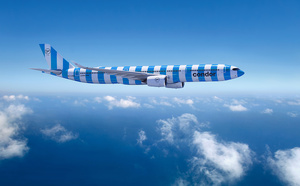



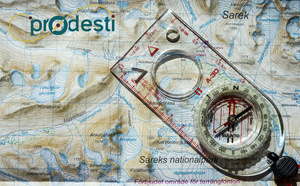






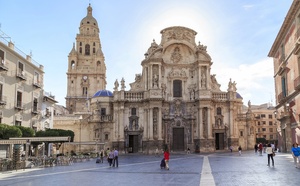




![Tourisme : où sont passés les Chinois ? [ABO] Tourisme : où sont passés les Chinois ? [ABO]](https://www.tourmag.com/photo/art/large_16_9/87929923-62307593.jpg?v=1744721842)

